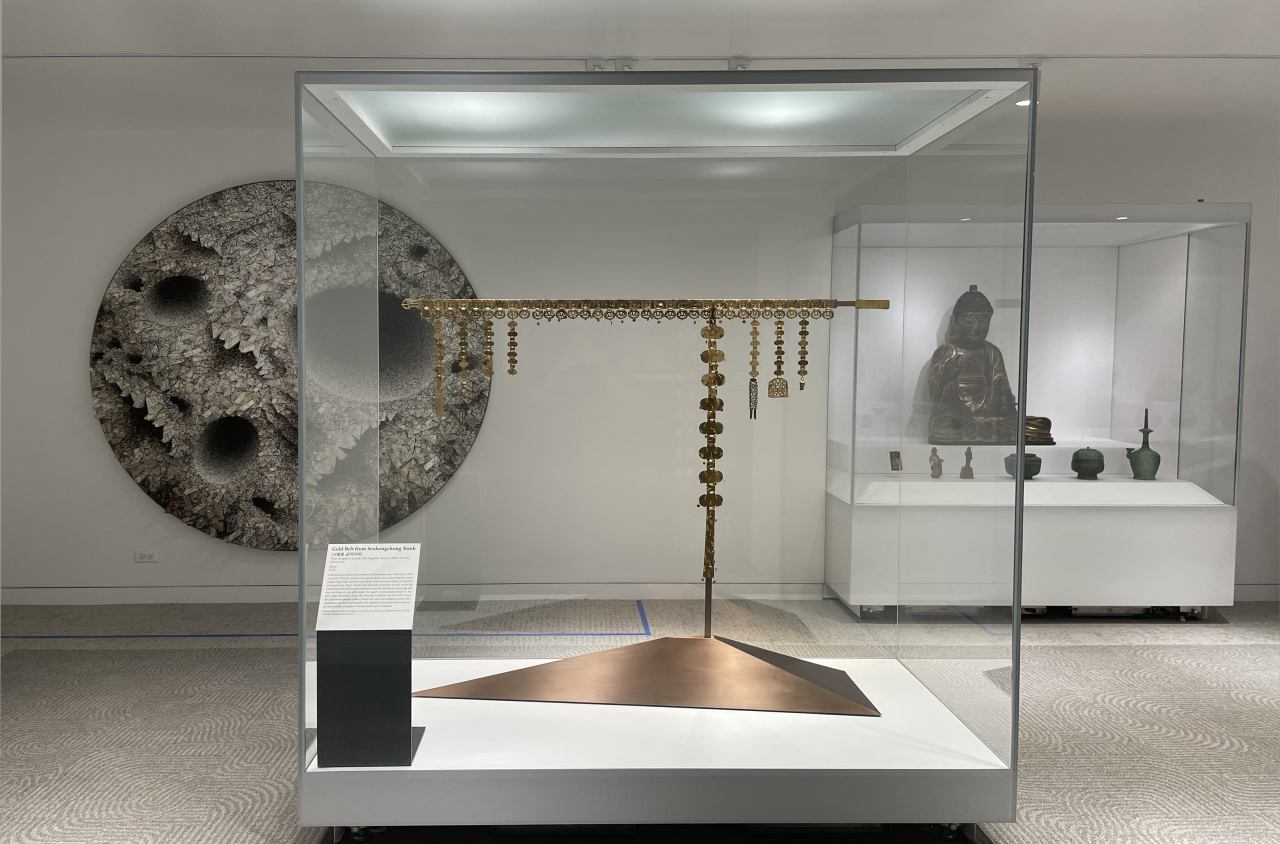
 |
| Korean artifacts are on view at the Korean Gallery of the Art Institute of Chicago in Chicago. (Art Institute of Chicago) |
The Korean Gallery at the Art Institute of Chicago is reopening Friday, US time, three times larger and showing more than its previous offering of ceramics.
“The gallery will feature several themes including Buddhist Art, Celadon and Tea Culture, Symbolism in Motifs, Buncheong ware, Confucianism and White Porcelain and Treasures of Scholars,” an official from the art museum told The Korea Herald.
“The new Korean Gallery will provide an opportunity for visitors to see 60 objects on view,” the official added.
To mark the occasion, a special viewing of the Gold Crown and Belt from the Seobongchong Tomb from Korea’s Silla Kingdom (57 BCE-935 CE) will run through Feb. 3 next year. The crown and belt from the National Museum of Korea are designated as treasures by the Korean government.
Chee Yeon-soo, associate curator of Korean art at the institute, called the expansion a new milestone that could help advance Korean culture.
“We now have space for items other than ceramics. Metal and wooden artifacts are finally getting the light of day from our vault and visitors can check out our Korean paintings as well, which we will rotate on a regular basis,” Chee said.
Chee played a role in helping the Art Institute jointly host a touring exhibition of some 200 pieces from the Lee Kun-hee collection organized by the National Museum of Korea. The exhibition entitled “Korean National Treasures: 2000 Years of Art” will be held at the Art Institute of Chicago from March 7 to July 5, 2026.
The Lee Kun-hee collection comprises over 23,000 pieces of old and contemporary Korean artworks donated by the late Samsung Group Chairman Lee Kun-hee.
“The idea of the Lee Kun-Hee collection exhibition received positive feedback from my colleagues at the AIC for several reasons. First, the exhibition embodies the idea of philanthropy,” Chee said.
“Additionally, the Lee Kun-Hee collection represents the history of collecting by multiple generations, and through this exhibition, people can learn about what is being valued and cherished by Korean people,” Chee added.









